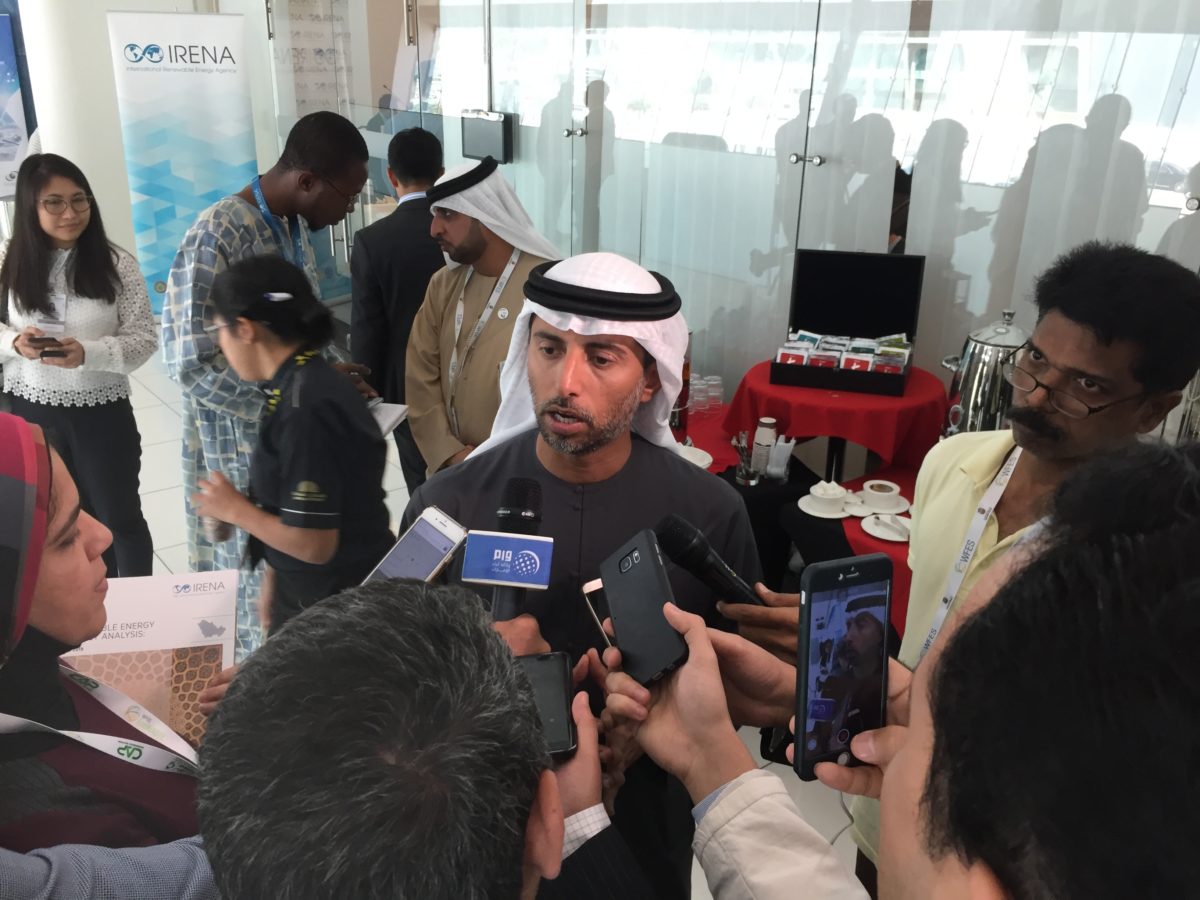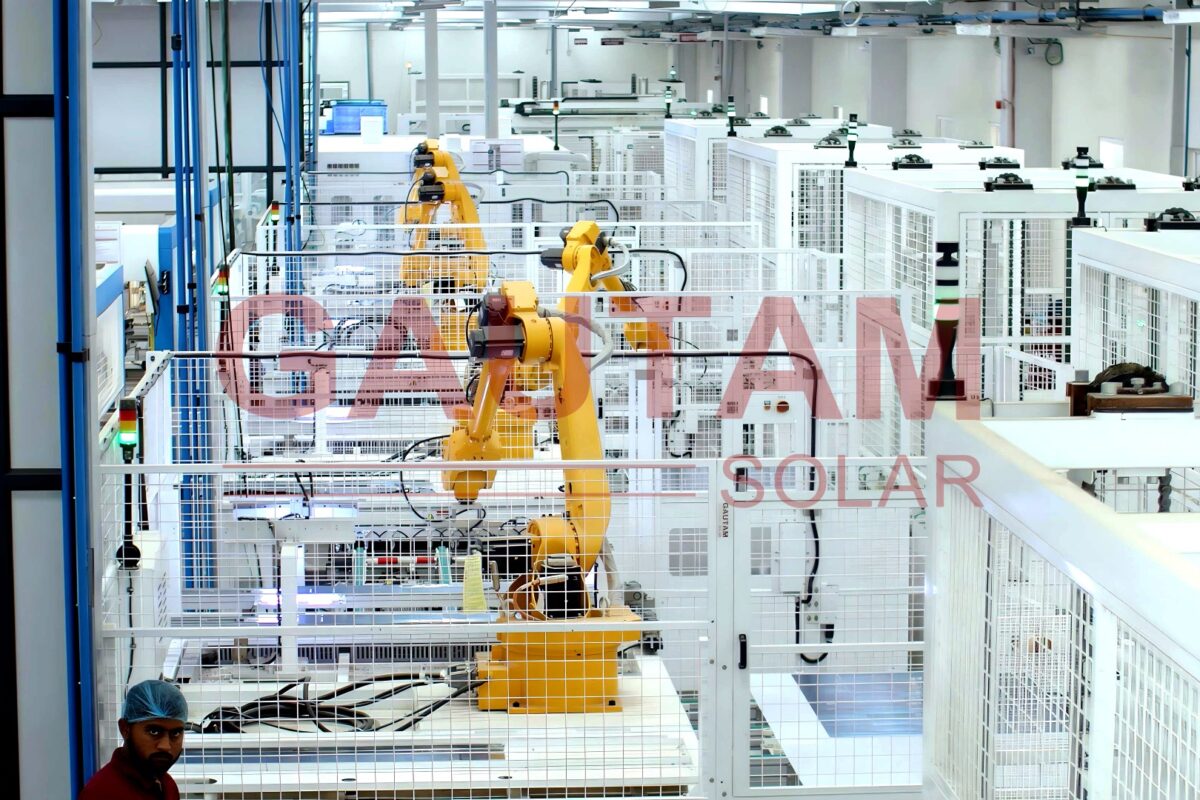From pv magazine international.
Almost 5.4 GW of PV capacity is set to be added by Gulf Cooperation Council (GCC) countries by the ‘early 2020s’, according to detailed analysis published by the International Renewable Energy Agency (IRENA) today.
Speaking at the launch of IRENA’s GCC report, the United Arab Emirates energy minister said he expects that figure to be surpassed – with around 6-7 GW of new renewable generation capacity set to be developed in the UAE alone in the next five years.
The Renewable Energy Market Analysis for the Gulf Cooperation Council countries report finds 867 MW of renewable capacity has been installed across the six Gulf member nations to date, of which 657 MW was installed between 2014 and last year. The report expects 6,732 MW of PV, wind and concentrating solar power (CSP) to be installed in the region in the next few years – with 81% of it PV.
At the launch, IRENA director-general Adnan Z Amin said: “When [IRENA] published the first edition of the report in 2016, the conversation was, ‘should we have renewables?’ We have moved the discussion to ‘how [do] we integrate? And how do we go further?’”
Head of OPEC in attendance
Amin said that with UAE minister Suhail Mohammed Faraj Al Mazroui in attendance, it was the first time a president of OPEC had attended the release of an IRENA Renewable Energy Market Analysis report.
Al Mazroui, who was elected president of OPEC in December 2017, said: “We are just seeing the tip of [the] iceberg when we are talking about what we should do, when looking at the commercial aspects of renewable energy, particularly solar, in this region.” He said he believed renewables can cover 100% of daytime electricity demand in the region.
In an off-the-cuff address, Al Mazroui noted that the record low prices large scale solar and wind have achieved in the Gulf have seen the GCC help regional governments wind back gas subsidies.
“It [renewables] does make sense, it is cheaper, and it is an IPP [independent power producer],” said Al Mazroui. “We need to fully enable the competitive tendering, and the developers to come and help us, as governments.
“What is important is the pace, the pace of change needs to be faster. I have been an advocate and have been pushing, and I think we will see more than 7 GW in the next five years. My expectation is to see 6-7 GW only from [the] UAE in the next five years.”
That call to arms though, came just a month after GCC member states Saudi Arabia and Kuwait joined the U.S. and Russia in dragging their heels on setting a roadmap for global climate change policies at the UN’s COP24 climate change convention in Katowice.
Interconnectivity is the next challenge
The OPEC chief noted that as the challenge of cost competitiveness for renewables – and in particular PV – has been overcome in the GCC region, the next challenge is intermittency. He said interconnectivity between GCC nations and Middle Eastern neighbors will be an important development.
The IRENA findings state that if GCC renewable energy targets are achieved, by 2030 some 354 million barrels of oil equivalent could be saved – albeit presumably for sale elsewhere worldwide – and 220,500 jobs created.
The report also predicts the deployment of renewables could see a 17% reduction in the volume of water used in electricity production.
Al Mazroui echoed those findings when speaking of his country’s achievement in reducing the cost and fossil-fuel consumption of desalination. He said by powering desalination with PV, costs have halved in some UAE plants.
“That has reduced the cost of desalination significantly,” Al Mazroui said. “It is one of those areas we need to watch. It will prevail, it will come, and we need to see more of it.”
This content is protected by copyright and may not be reused. If you want to cooperate with us and would like to reuse some of our content, please contact: editors@pv-magazine.com.








By submitting this form you agree to pv magazine using your data for the purposes of publishing your comment.
Your personal data will only be disclosed or otherwise transmitted to third parties for the purposes of spam filtering or if this is necessary for technical maintenance of the website. Any other transfer to third parties will not take place unless this is justified on the basis of applicable data protection regulations or if pv magazine is legally obliged to do so.
You may revoke this consent at any time with effect for the future, in which case your personal data will be deleted immediately. Otherwise, your data will be deleted if pv magazine has processed your request or the purpose of data storage is fulfilled.
Further information on data privacy can be found in our Data Protection Policy.